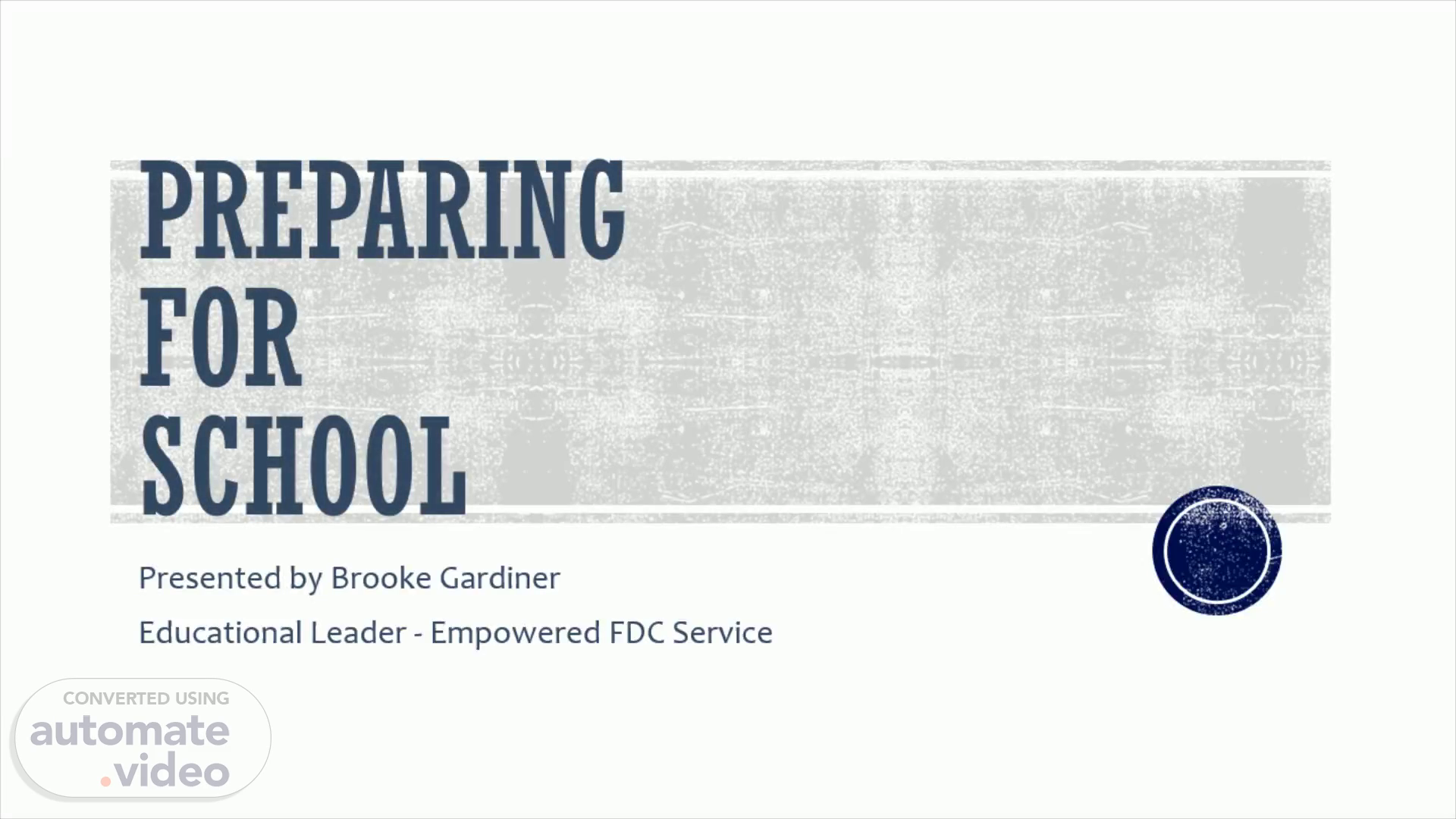
Page 1 (0s)
preparing for School. Presented by Brooke Gardiner Educational Leader - Empowered FDC Service.
Page 2 (17s)
ACKNOWLEDGEMENT TO COUNTRY We would like to acknowledge the Gubbi, Gubbi people ON THE SUNSHINE COAST, Giabal and Jarowair peoples of the Toowoomba area, The Quandamooka People OF THE REDLANDS BAY AREA the traditional custodians of the land on which we work and live. We pay respect to their Elders past, present and emerging..
Page 3 (34s)
The term ‘school readiness’. School readiness has traditionally been thought of as a simple outcome of maturation or chronological age, and has focused on particular qualities and capacities in the child. School readiness is now seen as having four interrelated components: children’s readiness for school, school’s readiness for children, and the capacity of families and communities to provide developmental opportunities for their young. T he expectations for five-year-olds today is very much the expectations of six-year-olds 25 years ago..
Page 4 (2m 2s)
reflection. Most early years experts prefer to reframe “readiness” to mean transitioning into the formalised learning environment. What are your thoughts on this term?.
Page 5 (3m 1s)
What does the research tell us?. R esearch suggests there are a number of factors that either facilitate or hinder school readiness; these can be at the level of the individual, the family, early childhood services, schools and the community. There is consistent international evidence that children who have participated in high-quality kindy programs gain significant long term benefits. These include higher levels of completed education and subsequent employment, greater stability in relationships and lower rates of mental illness. “The key factor in promoting children’s school readiness is in all environments – families, early childhood services, community settings and schools – is the nature of the relationships they experience; the primary mechanisms through which children acquire the underpinning skills are the social relationships they form with parents, care-givers, teachers and peers” (Education QLD, 2008).
Page 6 (3m 35s)
“Children will not enter school ready to continue learning unless families, schools and communities provide the environments and experiences that support the physical, social, emotional, language, literacy, and cognitive development of infants, toddlers and preschool children .” ( Education QLD, 2008).
Page 7 (3m 51s)
Ready families + Ready early childhood services + Ready communities + Ready schools = Ready children.
Page 8 (6m 23s)
Preparing for School. There are so many skills, behaviours and capabilities that our young children need to be competent in before commencing school, other than just their capacity to count and know their alphabet ..
Page 9 (7m 0s)
Physical Health & Wellbeing Social Competence Emotional Maturity Language & Cognitive Skills Communication Skills & General Knowledge Independence.
Page 10 (7m 9s)
finemotorskills independence healthyfood blownose wellrested turnpagesinbookfOCus toileting getdrsed sitting eating listeningskills blockbuilding washhands pencilgrip goodhealth.
Page 11 (7m 17s)
cooperativeplay resilience playsolo copewithstress healthyassertiveness pro-socialbehaviour getalongwithchildren copewithnewlearningtasks.
Page 12 (7m 24s)
copingstrategies minimaladultcontactinlargegroups seperationanxiety emotionalintelligence developfriendships emotionalregulation emotions.
Page 13 (7m 30s)
Language and Cognitive Skills.